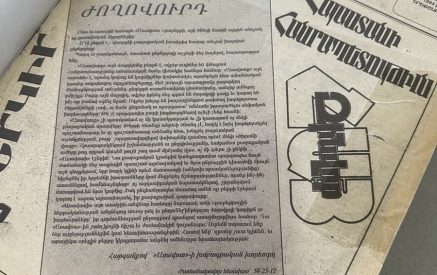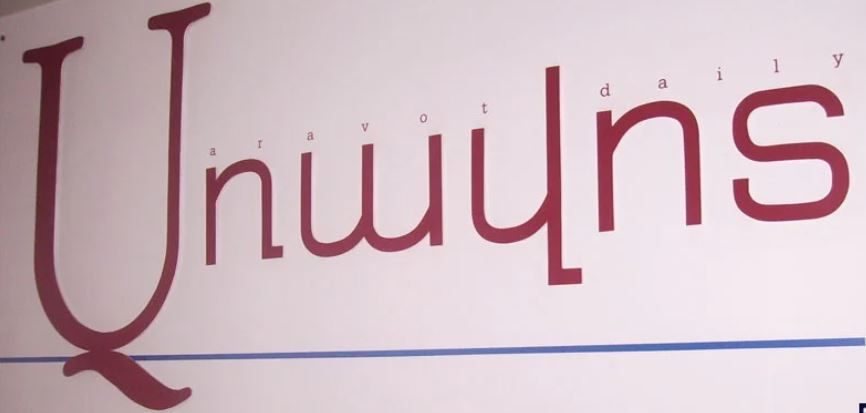How good it is that I am the head of “Aravot” for about 20 years, I’m the only person here to be accountable for all written articles, and I consider all people working with me (with few exceptions) very successful staff. Otherwise, can you imagine how much the former editor of “Aravot” and I would argue about the newspaper of when it was better, and the staff more unsuccessful?
It is now theoretically possible that “Aram” of 10 years ago rebukes today’s “Aram,” “what are you writing? Was it like that in my time?” And, today’s “Aram” would answer, “Whose cow moos? Do you remember, what was written in such-and-such issue of such-and-such year?” And so on and so forth. After that, “we” would establish our parties, offices and would start write down “materials” about each other. For one person, it would be a pathology, wouldn’t it? And for one state?
After September 21, 1991, the talks like “and I,” “and you”, “and we”, “and they”, in their sense, I think, must be completed. Because what we’ve done, we’ve done, not only in the sense that the authorities of all times have the same “team” genealogy and have done many things together, but in a broader sense, they have not come from other planets, they are part of our society. This does not mean, of course, that we should not talk about the past and present faults and defects, or there should be no authorities and the opposition. They are all necessary. Anyway, this whole debate should proceed by having “we” in mind.
Whereas, after February 1998, we had one “present” and one “former” authorities, and after February 2008, we had one “present” and two “former” authorities. Each of these three groups is confident in his being unmistakable, they believe that they should cause nostalgia for the “former”, and admiration for the “present”, they have their own media, MPSs, offices, and are constantly raking around the present and past from the prospect of “I”.
Read also
All citizens and especially leaders of these three groups should contribute to the sense of “we” rather than “I”. And there is a possibility to do a lot to contribute to it. Specifically, to change the style of interaction. If these leaders want to convey messages to each other, let them meet and talk rather than doing it through their MPs, publishers, campaigns, office statements, announcements at the faction sessions, and self-interviews. If they have a problem with convincing the public, let them come up with press conferences and direct, not distance debates.
Otherwise, sometimes all of it leaves the impression of minor clashes and squabbles, in which, for no reason, we are involved.
ARAM ABRAHAMYAN






















































